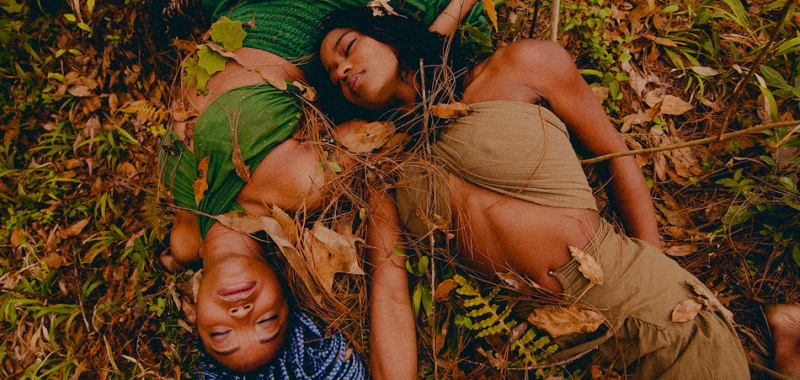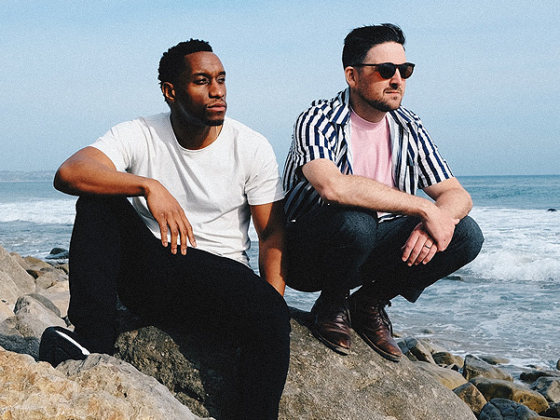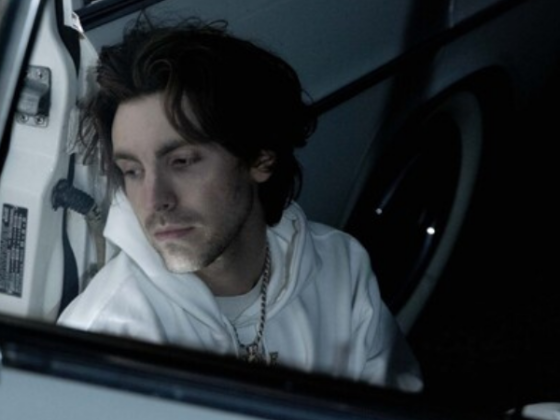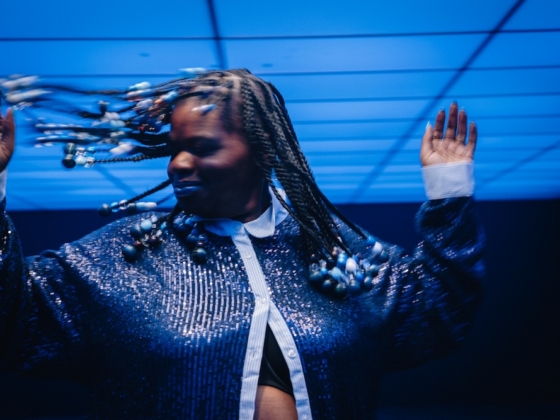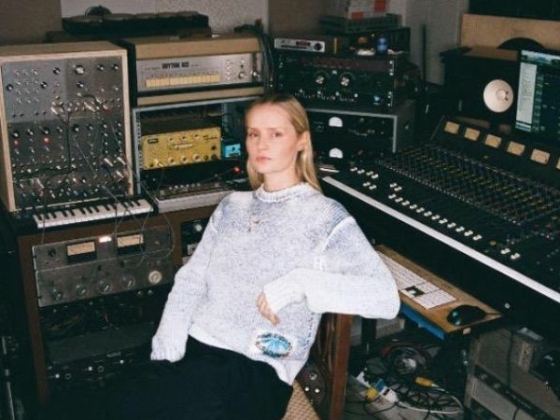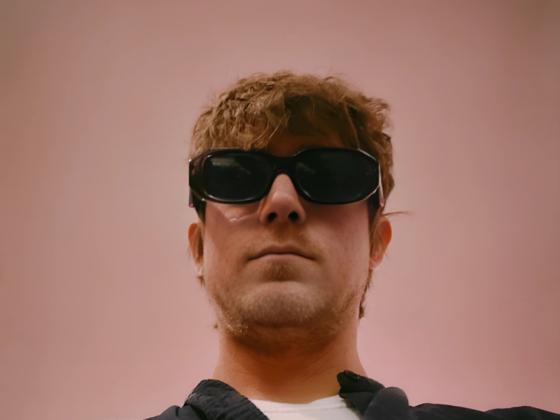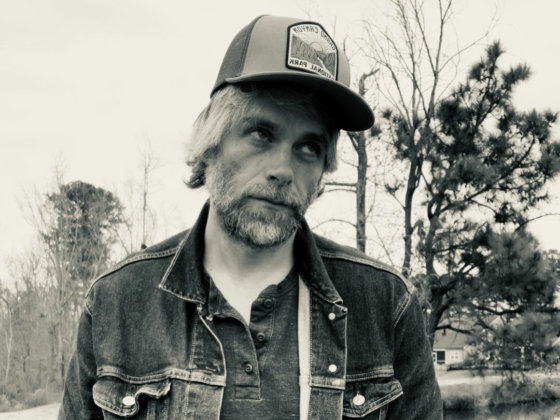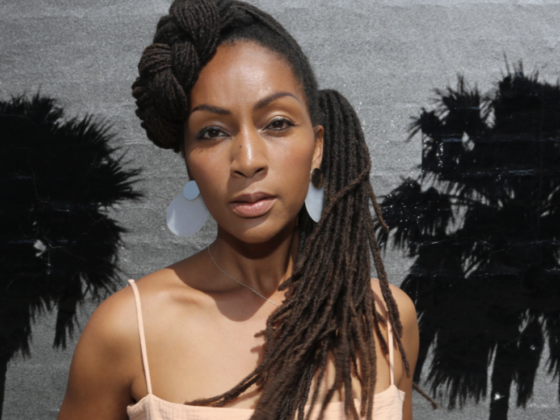It's mid-May and "people are wearing booty shorts," Becky Foinchas tells me. Sharing a couch with her two bandmates, Esther Quansah and Adam Turay in their Brooklyn studio, the three friends who make up the West African art-folk band, The Narcotix, are excitedly spilling their thoughts and stories to me like they were a jug of bad milk. Usually, the pre-interview niceties include the expected "how are you," the occasional "what's the weather like over there?" (hence the booty short comment), and lately, the "how does the pandemic look like on your side of the world?" question. But these three are no usual people, and the conversation very quickly flows into a state of answering questions directed at me—curiously so—and engaging with each other; Adam's booming laugh perfectly matching Becky's larger-than-life presence, while Esther's thoughtful devotion to find the right words cuts through it all.
Upon first listen to their debut EP, Mommy Issues, I was left with possibly more questions than answers. The eclectic mix of sensual instrumentals, dissonant vocal effects, and floating lyrics can leave you wondering what it is that you're supposed to "get." But after only ten minutes with the three musicians, I quickly got all my answers, before I had even asked the first question.
"It's a bitch," Becky laughs as I ask whether they ever find it hard to describe themselves. "It's just like, what do you think we sound like because we don't know. And so we just start saying adjectives like crisis…crisis ,like alpaca…cookingware. Are those nouns?" She stops herself as Adam points out her use of nouns, rather than adjectives. "It's really difficult just within the confines of like, genres, and what we're used to," Esther adds. "And then, some advice that we've gotten in the past is, like, trying to nail down your elevator pitch. And that's even more difficult because now you gotta narrow it down to thirty seconds. And it's like, wait, it's more than that. It's longer. It's a conversation." It's not to say that The Narcotix' sound is beyond human understanding, but rather, it touches so deep within our understanding that it becomes hard to find the words to describe its moving parts. All you can do is describe its impact, and the way that it makes you feel, which more often than not is simply bewildered.
"We're all just familiar enough with what the history of our listening shit [sic] that we just, like, that thing!" Adam points, explaining that they don't even talk about their music in a formal manner amongst themselves, but rather, trust their own collective intuition. "We never "noun" anything," Becky continues. "It's just like, 'Oh, yeah, that sound.' We—you know what I find that we end up— for instance, when we were recording the album, we're trying to describe to the engineer who grew up with us as well more of like, talking around 'it' versus trying to define the thing. It's like, 'so how do we? I want it to sound like that,' and he's like, 'oh, like a broom swirling around the ceiling?' And I'm like, 'yes, yes, that sound!' So that's usually the conversation. Because we are kind of living in a bubble of people we've all grown up with, we never really have to describe anything, we're pretty lucky, it's luxurious here."
Esther and Becky met in elementary school in Virginia, both daughters of African immigrants (Cote D'Ivoire and Cameroon respectively), who then went on to meet Sierra Leonean Adam while attending the University of Virginia, where the three quickly bonded over their shared loved of music. While in Virginia, they would perform at DIY venues and house shows, discovering their craft and beginning the work of polishing it before relocating to Brooklyn in 2017.

Broken down into its individual parts, The Narcotix' sound is largely driven by its environment: the deft plucks of guitar strings and resonant vocal "oh"s on "Adonai" akin to the sound of running water, while the fervent shakers and percussion on "John/Joseph" is reminiscent of rustling leaves in a dense forest on a particularly windy day. But the true beauty of it lies in its depth, a tapestry so rich and diverse, not one note can be mistaken for another. And while Esther and Becky's mellifluous vocals lilt in free forming sentences—"Search for kindness / search for freedom" ("Lilith")— a higher sense of awareness washes over you all the same as a reminder that words can hold meaning without ever needing any further analysis. "Usually, there's a lot of storytelling that takes place," Esther notes. "I remember, especially, like, our first kind of project, there was a lot of 'a girl getting lost in the woods and you know, waking up in a new land, and like, what does that feel like?' And like, being chased and finding the sun, finding a valley and finding a river and floating down the river. And that just kind of makes sense. Imagery? Yeah, a lot of imagery."
It's a rare form of artistry to speak—or sing— in images, but one that seems to come naturally to the unbreakable trio. Even though they don't all draw inspiration in the same way: "I could be in jail and be like, 'oh my god, oh my god, the grey in this wall! AGGHHHHHH!'" Becky proclaims, noting that she can find her muses in any situation, at any time. Esther, on the other hand, admits that "[it's] really kind of the opposite for me, which is funny of how we work too, we're very different. For me it's definitely, the place that I am in, informs the sound of the music, whether vocals come out, whether it feels like a guitar moment, whether it's just snapping, which eventually translates into the drums but less about the city or geographic location, but like, are we in the woods right now?" But the sense of accomplishment—and pride—in making the music they want to hear follows all of them around equally. " It's cool, because I think that a lot of the stuff that I want to hear is just being made in our band right now," Adam shares. "Especially things that I think of as like clichés in music or like, things that I feel I hear in a certain context. Like, I play guitar that can sometimes be fucked up and angular but in the context of this band, it makes a lot of sense and feels like disparate elements coming together."
Mommy Issues is more than just a debut. It's a conversation, not unlike the band that made it. A cycle that is ever-changing, ever-learning, and never repeating. "The more I feel, the more I listen to the album, the more it's like the relationship for me between Mother Earth and humanity," Becky starts. A sentiment that deeply resonates with both Esther and Adam as well. "I went to this like —Tibetan Buddhist— like whatever thing, in the mountain in the middle of nowhere in the middle of the night— chanting thing— and the subject for the day was about mothers, was all about mothers. The monk was describing how they are the most of most [sic] compassionate beings ever in existence, mothers, but they get —pretty much in his Buddhist terms— they get treated like shit all the time. Forgotten, pushed aside, taken for granted, all the things. It's true, they give you everything and expect nothing in return, and for sure, they get nothing in return. And so that relationship between humanity and mother—the ultimate Mother Earth— is, you know, tarnished and dark. Expectations from human beings sucking up resources, breastfeeding off of mother, never giving back. And not to say that that has to be our existence forever, but that is kind of the tumult of the album, the ever changing moods is kind of mother fighting back with tsunamis and she's like, 'well, fuck you. 'And then the tidal wave, and then there's peace and calm, it's a great day, and then all of a sudden, there's like, a tornado. And so that's where I've come to a head…but it's gonna probably change tomorrow."
The power of Mommy Issues is in that exact last sentiment—the ability to morph into whatever takes up space in your mind that day—intruding on every small and big thought until it penetrates without much fight. It can act as a soundtrack, painting your own story with accented brush strokes, or it can act as the main attraction, smothering you in a rush of color. It's a long way from the road trip from Charlottesville to northern Virginia the two women took years ago to visit their parents, an instrumental J.Cole song playing on the stereo inspiring Becky to start rapping, Esther to start recording and singing along, unknowingly birthing the eventual idea of The Narcotix. "That was just a joke," Esther says. "A joke that went too far," Becky laughs. "That's the whole band—a joke that went too far," Adam relates. But funny thing is, we're not laughing. We're applauding.
Connect with The Narcotix: Facebook|Instagram|Twitter|Spotify

